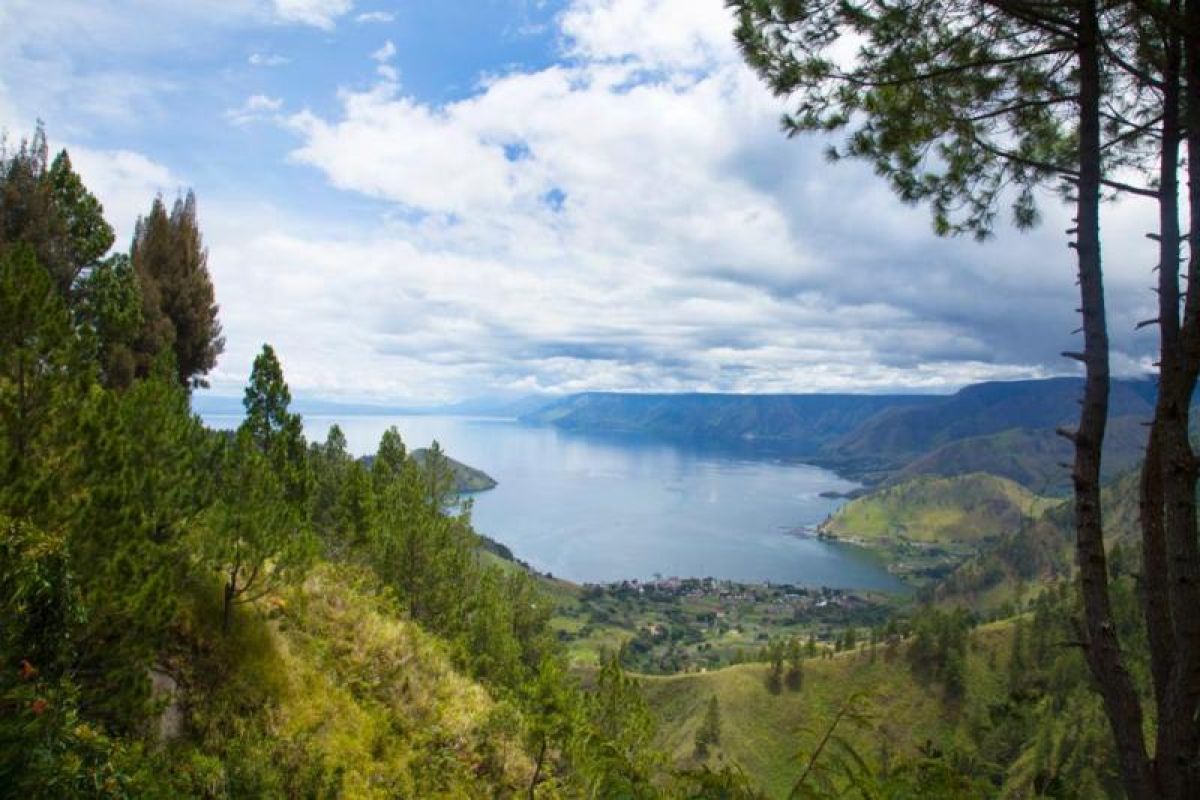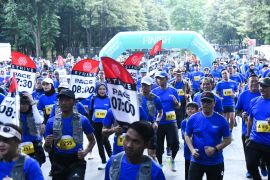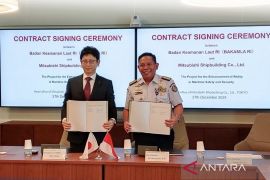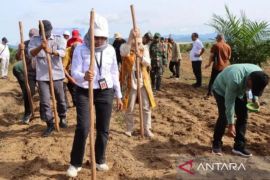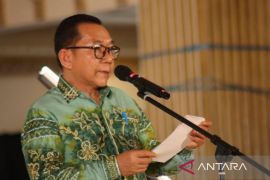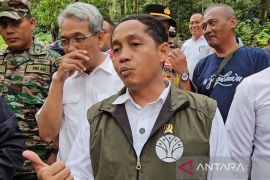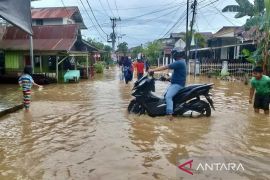. (ANTARA) - Located in North Sumatra province, Lake Toba is the largest volcanic lake on Earth.
The ancient lake was formed as a result of a volcanic eruption 74 thousand years ago. The Toba eruption, which is the largest known volcanic event on the planet, produced a steep-walled caldera, which, over time, filled with water to form the largest of Indonesia’s lakes.
When viewed from space, the Toba caldera is one of the most striking volcanic craters on Earth, measuring an impressive 100 x 30 kilometers.
Lake Toba and Samosir Island, which is located in the middle of the huge caldera, offer a complete tourism package — with beautiful views, glimpses into the unique Batak culture and traditions, and an intriguing history.
The inclusion of the Tabo Caldera on the list of UNESCO Global Geoparks (UGGp) has been a proud moment for Indonesia. The inclusion was approved at the 209th Session of the UNESCO executive board in Paris, France, on July 2, 2020. Along with the Tabo Caldera, 15 other geoparks were also put on the UNESCO list, including the Cliffs of Fundy (Canada), Xiangxi (China), Hantangang (South Korea), Rio Coco (Nicaragua), and Granada (Spain).
"With this inscription, Indonesia can develop the Toba Caldera Geopark via the Global Geoparks Network and the Asia Pacific Geoparks Network, especially in connection with empowering local communities," Indonesian Ambassador to UNESCO, Arrmanatha Nasir, said in a statement released from Paris on July 8, 2020.
The Indonesian government has succeeded in convincing UNESCO that Toba Caldera is a genuine evidence of high geological phenomena and traditional heritage of the local communities, especially in terms of culture and biodiversity.
In this context, UNESCO member countries supported the preservation and protection of Toba Caldera as a UNESCO Global Geopark.
The inclusion of Toba Caldera on the UNESCO Global Geopark List offers Indonesia, particularly the local community, an opportunity and a responsibility.
It could help drive local economic growth and sustainable development in the region. Developing the areas as a sustainable geotourism site would open opportunities for the local people to promote their culture, local products, and create broader employment opportunities.
The final endorsement of Toba Caldera as a UNESCO Global Geopark was a lengthy process and various stakeholders — both the central and regional governments as well as the local community residing in the Lake Toba region — made unified efforts to this end.
"The preparatory process to obtain the UNESCO recognition for Toba Caldera demonstrates high commitment and sound cooperation from all parties in Indonesia since the start of the process, right from collecting data to holding various workshops as well as preparing and negotiating nomination documents to be submitted to the UNESCO," the ambassador remarked.
Toba Caldera made it to the UGGp list following an assessment by the UNESCO Global Geoparks Council at the IV UNESCO Global Geoparks International Conference held in Lombok, Indonesia, from August 31 to September 2, 2019.
Indonesia has four other UNESCO Global Geopark sites: Batur, Cileteuh, Mount Sewu, and Rinjani.
The country also has abundant natural and cultural wealth, including 10 intangible cultural heritage sites, nine cultural and natural heritage sites, and 16 biospheres, that have made it into UNESCO lists.
Lake Toba is among Indonesia's top tourist destinations, and has been included on the "10 New Balis" list.
Minister of Tourism and Creative Economy and head of the Tourism and Creative Economy Board, Wishnutama Kusubandio, has welcomed the designation of the Toba Caldera as a UNESCO Global Geopark.
He said he is extremely pleased that Lake Toba has received a world-class certification, which would make it even more well known at the international level.
Most importantly, it will bring benefits to the local people, he opined.
"Lake Toba can be a source of earning for the people, with (the area showing) a high potential to be developed into a tourism destination. Combining three potentials, including geodiversity, biodiversity, and cultural diversity, Lake Toba plays an important role in upholding the tourism sector," he noted.
He further explained that through sustainable geotourism development, people may get an opportunity to expand the market for local products, showcase their culture, and create jobs.
A native of North Sumatra, Coordinating Maritime Affairs and Investment Minister, Luhut Binsar Pandjaitan, has been zealously pushing the development of Lake Toba as a tourist
area.
He said he has tried to ensure that development in the area is not hampered by the COVID-19 pandemic.
This has been evident from the compensation presented by the Lake Toba authority for land acquisition and a groundbreaking ceremony marking the development of 10 tourism
villages of the Lake Toba tourism area on July 10, 2020.
"These two achievements prove that the COVID-19 pandemic is not an obstacle for us to go ahead," Pandjaitan noted recently.
Pandjaitan said he is optimistic that Lake Toba’s development would proceed quickly and investments will also flow in after the completion of the first stage of the land acquisition program.
The development of Lake Toba is expected to help expedite infrastructure development, preserve the environment, and boost the welfare of the local community.
Related news: Tourism minister welcomes Lake Toba named as UNESCO's Global Geopark
Related news: Lake Toba development continues despite pandemic: Luhut Pandjaitan


